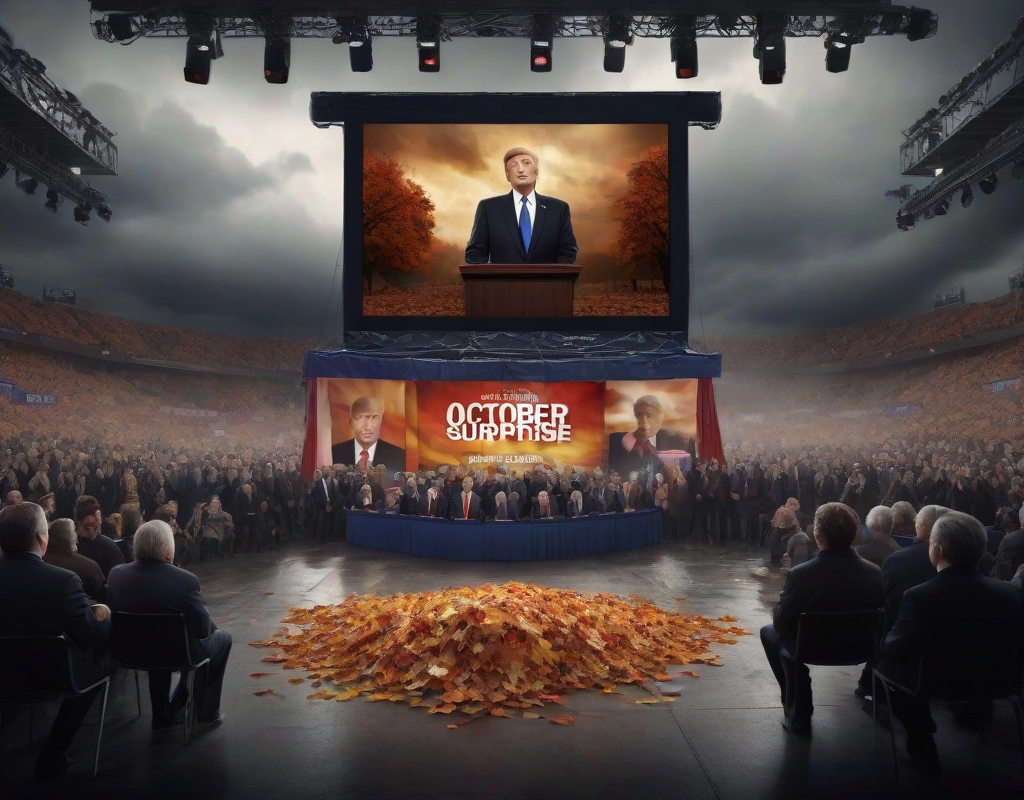In an insightful discussion on HBO’s “Real Time with Bill Maher,” the host offered a stern cautionary note to Democrats regarding their electoral strategy against Donald Trump, specifically warning that relying on the “October Surprise” might not yield the desired political upheaval. This term, “October Surprise,” refers to significant, often scandalous revelations disclosed just before an election, aimed at influencing the outcome. Despite its historical potency, Maher expresses skepticism about its effectiveness against a figure as contentious and resilient as Trump.
### Trump’s Political Tenacity
Donald Trump’s tenure in politics has been anything but conventional. He has weathered numerous scandals that would typically end political careers — from the notorious “Access Hollywood” tape to his involvement in the January 6 Capitol riots. Despite these controversies, he maintains a strong and loyal base. Maher underscores a prevalent desensitization among the electorate, particularly Trump’s supporters, to scandalous behavior, which weakens the potential impact of any last-minute revelations.
Political commentators, including Frank Luntz, observe that Trump has redefined the boundaries of acceptable political conduct, with his base largely unfazed by actions and rhetoric that would typically be deemed disqualifying. This unique political landscape suggests that traditional campaign shock tactics, such as the “October Surprise,” might no longer be as influential.
### The Normalization Dilemma
Maher emphasizes the normalization of Trump’s behavior as a critical factor in the diminishing returns of traditional political strategies against him. Studies, such as those from Pew Research Center, affirm that despite frequent media uproars over Trump’s actions, his core support remains stable. Voters who back Trump often prioritize policy achievements or admire his unorthodox approach, viewing it as a refreshing break from political norms.
This phenomenon of normalization is pivotal for Democrats to understand as they strategize for upcoming elections. The tactic of deploying game-changing revelations late in the campaign assumes voters are still capable of being significantly swayed by such disclosures, a premise seemingly invalidated in Trump’s case by the consistent loyalty of his base.
### Maher’s Personal Involvement
Further deepening the conversation, Maher shares his personal stakes in the political narrative, expressing support for Vice President Kamala Harris. Maher views Harris as emblematic of the progress and values he wishes to see prevail — inclusivity, resilience, and a reinvigorated democratic vision. His support for Harris isn’t just political but personal, as he desires to see her overcome the myriad challenges that women and minorities often face in the political arena.
Kamala Harris, as the first Black, South Asian, and female Vice President, stands as a monumental figure in the shifting sands of American politics. Her candidacy is not just about maintaining the status quo but pushing forward progressive values and policies.
### A Call for Strategic Reformulation
Maher’s caution about relying on “October Surprises” is a call to Democrats for strategic innovation. Instead of depending on sensational disclosures, there’s a need for a robust platform that emphasizes clear, policy-driven campaigning and grassroots organization. This approach is especially crucial in battleground states where the electoral margins are slim and voter turnout is pivotal.
As political dynamics evolve, it’s clear that Democrats face a crucial test in mobilizing and rallying their base. Recent polls, including a 2023 Gallup survey, show a disparity in voter enthusiasm between Democrats and Republicans, highlighting the importance of inspiring and engaging Democratic constituents effectively.
### Amplifying Harris’s Role
Central to the Democrats’ path forward is Kamala Harris, whose tenure as Vice President has positioned her as a key figure in shaping strategic and inclusive policies. Her background as a prosecutor and senator, coupled with her advocacy on crucial issues like criminal justice reform and climate change, makes her a compelling figure to lead the Democratic narrative against Trump.
Democrat strategies should, as Maher suggests, focus on elevating Harris’s achievements and policies rather than engaging in the tit-for-tat skirmishes that often characterize political battles against Trump. Highlighting her leadership qualities and policy successes could provide a stark contrast to Trump’s divisive rhetoric and bolster her appeal among diverse voter demographics.
### Media Influence and Voter Perception
The intersection of media influence and voter perception further complicates the political landscape. In an era of heightened misinformation and polarized media echo chambers, Democrats need to navigate carefully, prioritizing factual, transparent communication and leveraging digital platforms to directly engage with voters. It’s crucial to utilize media effectively to debunk falsehoods and to amplify voices that can authentically speak to and for varied community interests.
### Conclusion: Beyond the Surprise
As Maher rightly points out, while the allure of an “October Surprise” remains tempting, the unique nature of Trump’s political resilience renders it a potentially ineffective strategy for Democrats. The party must instead focus on building a compelling narrative that speaks to the policies and values at the heart of their platform, with Kamala Harris as a central figure in this revitalized approach.
Looking forward to the 2024 election, Democrats have an opportunity to reformulate their strategies to be more grounded in substance and proactive engagement. By doing so, they can hope to not only challenge Trump effectively but also pave the way for a future that aligns with democratic ideals and progressive policies, thereby truly capturing the essence of a democratic society.




